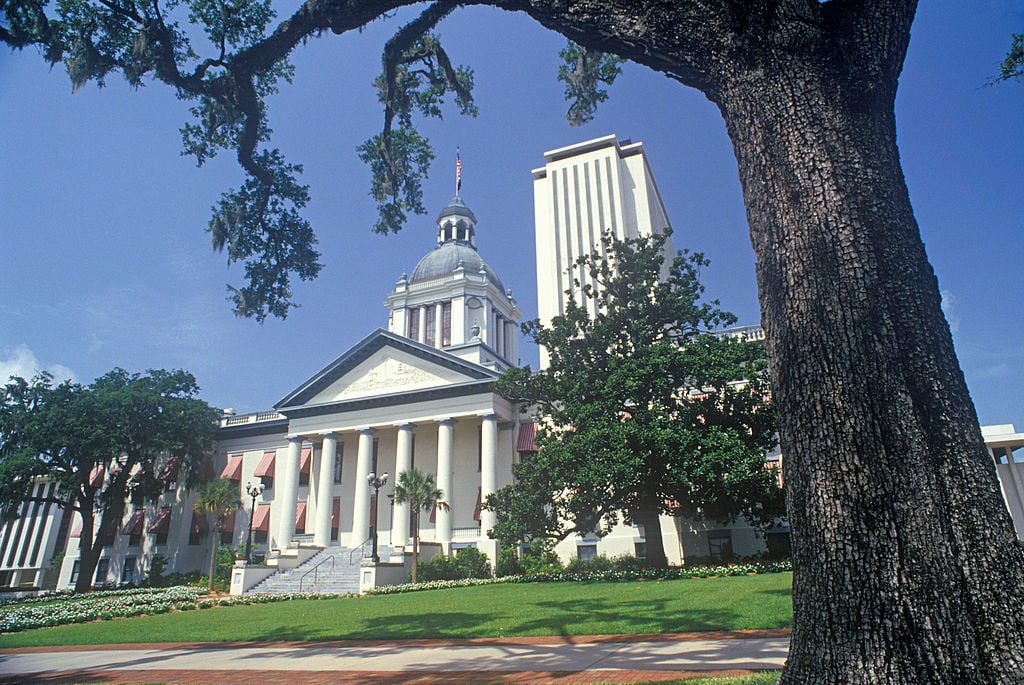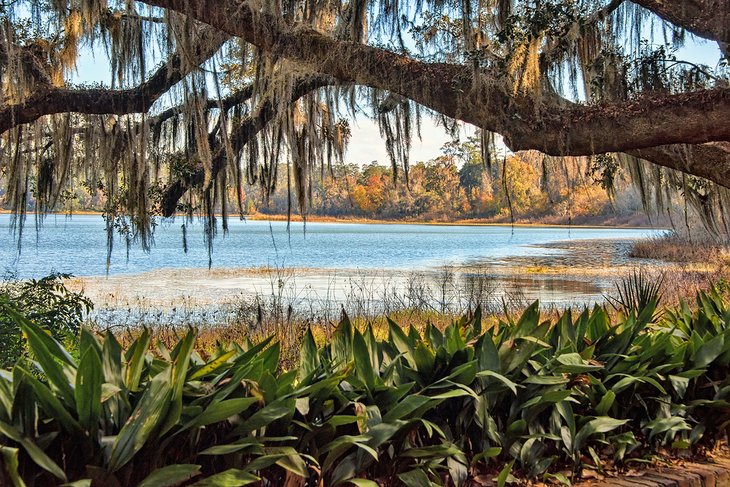The Florida Legislature handed a bill Friday that may shut presidential searches at state schools and universities, successfully protecting candidates’ identities hidden from the general public till the establishment decides on three finalists. Beneath Florida’s current open information legal guidelines, the names of candidates can be found to the general public all through the search course of.
The state Home of Representatives accepted the bill 86 to 26, and the state Senate handed the measure final month. Now it awaits approval from Gov. Ron DeSantis.
Advocates of the bill, together with state senators Jeff Brandes and Darryl Rouson, say the laws would assist state establishments appeal to a extra certified and numerous pool of candidates, the Tallahassee Democrat reported. A minimum of 5 of the state’s 12 public universities will search a brand new president within the subsequent few years, and the College of Florida plans to start a seek for its subsequent president this month.
Henry Stoever, president of the Affiliation of Governing Boards, helps the bill.
“They should appeal to the perfect expertise,” Stoever mentioned. “Having a requirement to reveal who’s in that candidate pool will considerably scale back the standard of the expertise pool that they’re contemplating.”
Sitting presidents and provosts are unlikely to use to an open search, mentioned Rod McDavis, managing principal at AGB Search, the next training government search agency.
“They really feel fairly safe of their present positions, and that safety might be threatened if their title is made public,” McDavis mentioned. “A president who has had his or her contract not too long ago renewed or prolonged may be in jeopardy of shedding that job in the event that they apply for one more place and the board finds out that they’re a candidate for one more presidency.”
In consequence, increasingly more states and establishments are choosing closed searches. Wisconsin and Tennessee closed presidential searches at public establishments in 2015 and 2018, respectively. In the meantime, the common size of presidential tenures is on the decline. In 2017, presidents spent a mean of 6.5 years of their jobs, down from 8.5 years in 2006, in response to a survey by the American Council on Schooling, and so establishments are in search of presidents extra incessantly. These processes typically take a yr to finish and require intense background checks, screenings and a number of rounds of interviews.
“There’s a need on the half of extra schools and universities to get the next high quality of individuals within the pool, and so they really feel they’ll get the next high quality of candidates if they’ve a closed search,” McDavis mentioned. “There’s a motion in that course on a nationwide stage.”
Nebraska lawmakers first launched a bill in 2014 that may have stored candidates’ names confidential apart from a single finalist. On the time, all candidates’ names have been stored secret apart from the 4 finalists. The preliminary bill finally failed, however comparable laws handed in 2016.
The 2016 bill contained a key distinction, mentioned Melissa Lee, chief communications officer for the College of Nebraska system—the establishment is required to call a “precedence candidate” who’s topic to a 30-day public vetting interval.
“That vetting interval has to contain visits to campus, open public periods, open periods with the media and so forth the place members of the general public and members of the college group can meet the individual and submit suggestions to the Board of Regents,” Lee mentioned. “After the 30-day public vetting interval—if the Board of Regents deems that the precedence candidate is appropriate to ahead based mostly on public enter—the board would vote on that individual.”
Critics of the Florida bill say an opaque search course of violates the general public’s proper to know who’s within the operating to guide their greater training establishments and will appeal to candidates who’re political insiders and never essentially certified for the job.
Irene Mulvey, president of the American Affiliation of College Professors, opposed the bill in an announcement, calling it a “step away from the mission of greater training to serve the frequent good.”
“The obvious motivation is to keep away from transparency, and to disclaim college and different members of the campus group alternatives to satisfy with the candidates making use of to guide their establishments throughout these difficult instances,” Mulvey wrote concerning the bill. “That is one more try to regulate the reality, to allow them to decide on a brand new president with none of the requisite and worthwhile enter from the school and employees that the brand new president will lead.”
School unions are frequent critics of closed presidential searches. The presidents of three worker unions at Montgomery School in Maryland not too long ago wrote a letter to their members expressing issues concerning the group school’s newest presidential search course of. Two of the signatories served on the search committee, which in December chosen Jermaine Williams, the previous president of Nassau Group School in New York, to function Montgomery’s president. After he was chosen, the union leaders discovered that the Nassau Group School Federation of Lecturers had issues about Williams and had alleged that his insurance policies “broken the faculty in areas of pupil success, tutorial programming, school group well being and security, and monetary integrity.”
“Whereas there’s a tendency to help the method of which we have been an element, after deliberation we have now reached consensus that the method ensuing within the choice of Dr. Williams was flawed,” the presidents wrote. “In our view, the presidential search committee didn’t have sufficient information to make an knowledgeable determination concerning the presidency. The committee was restricted to resumes and different supplies supplied straight by the candidates. The choice by the faculty administration and the Board of Trustees to not have a public discussion board on the candidates precluded the chance that extra data may emerge. Within the case of Dr. Williams, it ensured that destructive data that would have thrown his candidacy into query didn’t come to gentle.”
In response to the union presidents’ letter, Michael Knapp, chair of the Montgomery School Board of Trustees, mentioned the board was “totally assured and unwavering” in selecting Williams.
“The board performed a nationwide presidential search with interviews and a radical vetting and evaluation course of for candidates by the search advisory committee (representing the faculty group), the search agency, and the Board of Trustees,” Knapp mentioned. “As we start a brand new period with Dr. Williams as our president, the board is steadfast in its dedication and help to the whole Montgomery School group and Dr. Williams’ capacity to offer management and success to this group.”
Even when a search course of is closed, boards should be sure to contain college members and others, Stoever mentioned.
“Main follow is that the search committee will embrace members of the board, members of the school, and members of the administration, and will additionally embrace others, equivalent to alumni,” he mentioned. “It’s a board accountability, however it’s not a board-only course of. Half of the method is to be inclusive of different voices.”












![Getting People to Meet Your Comms Deadlines [Video]](https://carpet-cleaning-tallahassee.com/blog/wp-content/uploads/2022/01/bigstock-time-concept-85936037-324x235.jpg)